Jim_Strong
New Member
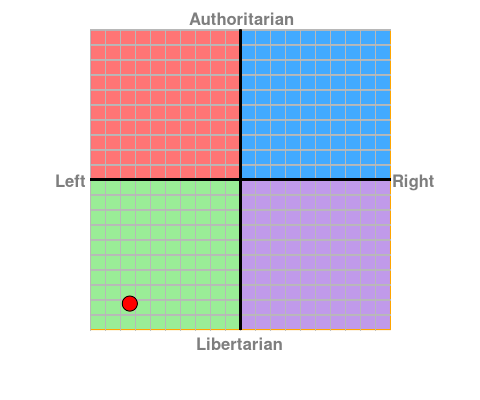
Being further south than Friedman on the chart has me somewhat confused. After all, I'm a communist.

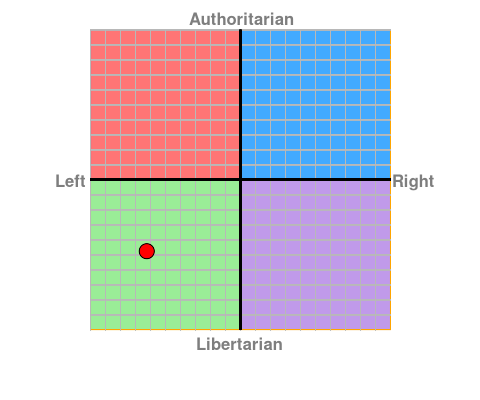
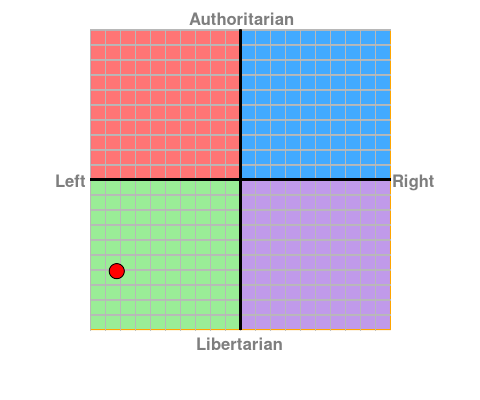
http://assets.pewresearch.org/wp-co...7/10/31115611/10-24-2017-Typology-release.pdfExternal Quote:Solid Liberals
Highly educated and politically engaged, Solid Liberals hold consistently liberal values. They back a robust role for government and are strong advocates of the social safety net. Large majorities view the current economic system as unfair and see economic inequality as a major problem. They take broadly positive views of immigrants, and fully 99% think being open to people from around the world is an essential part of the nation's identity. Most say more needs to be done to address both racial discrimination and obstacles to women's achievement. They support same-sex marriage and believe homosexuality should be accepted by society. Solid Liberals are the most Democratic of all typology groups: nearly two-thirds (64%) identify as Democrats, another 35% lean toward the Democratic Party.
Your Political Compass
Economic Left/Right: -10.0
Social Libertarian/Authoritarian: -9.28
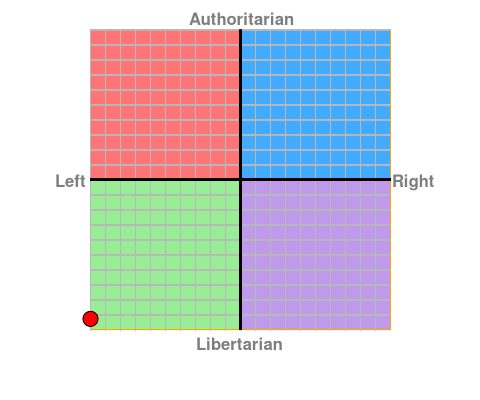
took the test a few years ago; didnt changed that much...in fact, not at all...thats the "new" one
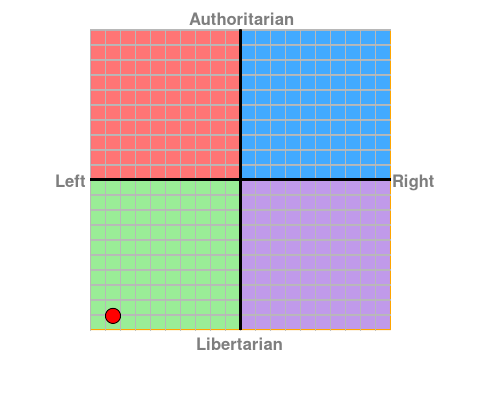
nice part is, it matches my avatar-pic nearly perfect(you knew that from the beginning, didnt you mick?)
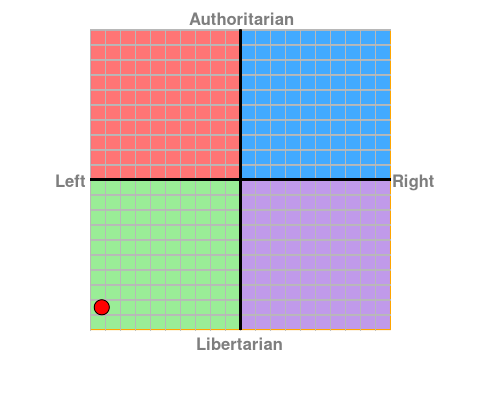
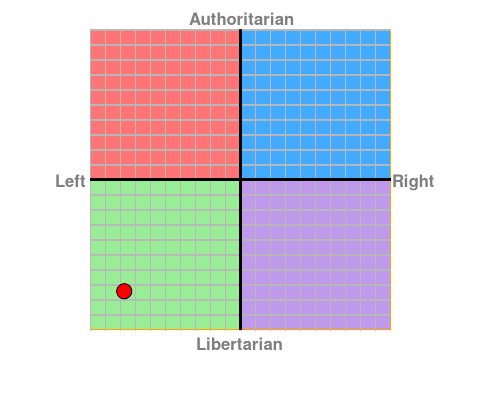
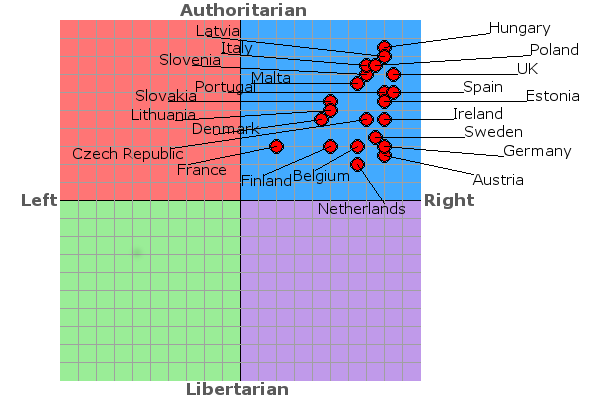
Yes, and in a liberal democracy the president can't just do whatever (s)he wants. You have to listen to what your own party, the congress and many other power institutions are saying. The whole system is deliberately made to prevent a single person from getting too much power. And even if you had absolute power, you can't suddenly change all the laws you would like to over night, it takes time and energy to turn a large ship around.When you achieve an office like the Presidency/Prime Minister in any country your philosophical beliefs can be easily trumped by the realities of the situation and the potential consequences of your actions. If you are not willing to take the actions needed even if they are counter to your personal philosophies you are not going to be a very effective leader. To believe otherwise is naive. You may not see the differences in the American political parties but most Americans have no problem pointing them out. It's true we don't have the cacophony of parties splitting the vote that many countries have but that has both advantages and disadvantages that are to numerous to discuss here.
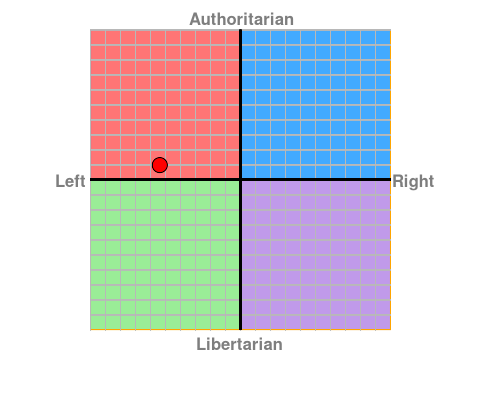
You don't pick where you are you answer the questions which determine where you are.These kinds of models are fun and interesting, I've seen a few under different subjects, but the problem is that where you have one definitive axis such as left and right, you can replace the words in the other axis and provide completely different context to the meaning and results of what it is you're trying to explain. It's quite novel and gimmick.
In videogames there is a website called mmcafe that uses the same thing, where ranking would be placed from top to bottom, however the other axis could be changed to whatever you like (in fact you can change any axis to whatever you want). This became a long running joke because of how inaccurate rankings would be come due to the obscurity of different parameters people would use, making it completely inconsistent and harder to understand.
Essentially in this model you could have left and right, and then KFC and McDonald's. Far left and far right does a good enough job at explaining your political position, however we could change the other parameters to "successful and unsuccessful" for example, then we'd have a chart that tells us who was left and right, but who was successful and unsuccessful in those positions.
So even though we can ask the question of "are you left or are you right?" and it answers a definitive question, the other parameters are still separate and can actually make it harder to really understand what your position means. What if you believe in an equal combination of both authoritarian and libertarian principles? Does that mean you're central? That doesn't really make sense as you've just cancelled both of those principles out.
I don't really like these axis charts, but for those who are curious I swing slightly to the right.
